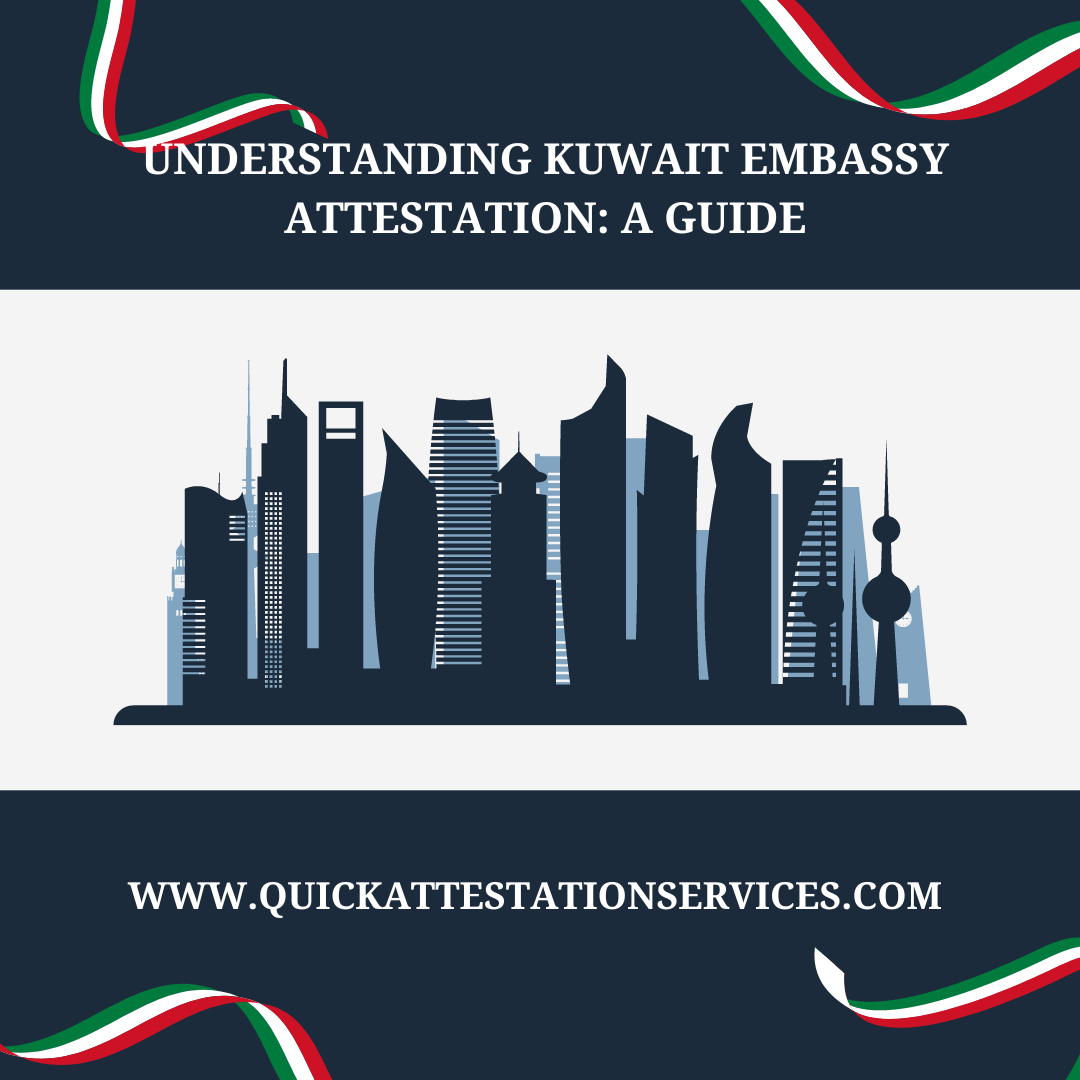
Introduction
In today's globalized world, international mobility has become increasingly common. Whether for education, work, or personal reasons, many individuals need to move across borders. One critical aspect of this process is document attestation, and when it comes to Kuwait, the Kuwait Embassy attestation plays a pivotal role. In this blog post, we will delve into what Kuwait Embassy attestation is, why it's important, and how the process works.
What is Kuwait Embassy Attestation?
Kuwait Embassy attestation is a formal procedure that involves the validation and authentication of documents to make them legally valid in Kuwait. This process verifies the authenticity of documents issued in one country for use in Kuwait. It is a significant step when dealing with documents like educational certificates, marriage certificates, birth certificates, and commercial documents, among others.
Importance of Kuwait Embassy Attestation
The importance of Kuwait Embassy attestation cannot be overstated. It serves as a bridge of trust between two countries' legal systems. The Kuwait Embassy's stamp on documents ensures that they are genuine and have been duly verified by the concerned authorities. This is particularly vital in situations where individuals are seeking employment, pursuing higher education, getting married, or engaging in any business transactions in Kuwait.
Key Steps in Kuwait Embassy Attestation Process
-
Notarization: Before the attestation process begins, documents need to be notarized by a competent authority, usually a notary public. This step verifies the authenticity of the document's contents.
-
State Attestation: Following notarization, the documents need to be attested by the relevant state or home department. This step further verifies the document's authenticity at a state level.
-
MEA Attestation: The Ministry of External Affairs (MEA) in the home country attests to the document's authenticity on a national level. This is a crucial step before proceeding to embassy attestation.
-
Kuwait Embassy Attestation: The document is then submitted to the Kuwait Embassy in the home country. The embassy verifies the document's contents and authenticity, attaching their official seal or stamp.
-
MOFA Attestation: After obtaining the Kuwait Embassy's attestation, the document needs to be attested by the Ministry of Foreign Affairs (MOFA) in Kuwait. This final step confirms the document's validity within the country.
Keywords: Kuwait embassy attestation, Kuwait embassy, Attestation
Conclusion
Kuwait Embassy attestation is an essential process that ensures the validity and legality of documents for use in Kuwait. As international interactions continue to grow, proper documentation becomes crucial for smooth interactions between countries. Whether it's for educational pursuits, professional endeavors, or personal commitments, understanding the Kuwait Embassy attestation process is paramount. By following the necessary steps and obtaining the required attestations, individuals can confidently present their documents in Kuwait, knowing that they hold legal weight and are recognized by the relevant authorities.

Leave a Reply